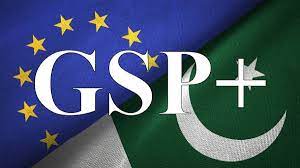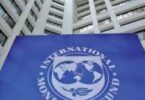F.P. Report
LAHORE: Raising grave concern over the continued falling trend of Pakistan exports the Pakistan Industrial and Traders Associations Front (PIAF) said that Pakistan’s exports to European countries dipped year-on-year by 7.54 percent in the first seven months of the current fiscal year, mainly due to reduced demand for Pakistani goods in western, southern and northern Europe.
PIAF Chairman Faheem-ur-Rehaman Saigol, quoting the latest figures, said that this decline in export proceeds indicated the challenges faced by Pakistani exporters in these economically uncertain times despite having preferential access to 27-member EU countries. The export proceeds from these countries fell to $4.866 billion in July-January FY24, a drop from the $5.263bn recorded in the corresponding months of the previous year, according to figures compiled by the State Bank of Pakistan.
In FY23, exports to the EU dropped 4.41pc to $8.188bn from $8.566bn in the preceding fiscal year. However, the decline in exports was seen despite the Generalised System of Preferences Plus (GSP+) scheme.
The PIAF Chairman said that in October 2023, the European Parliament unanimously voted to extend the GSP+ status for another four years until 2027 for developing countries, including Pakistan, to enjoy duty-free or minimum duty on exports to the European market.
Western Europe, which includes countries such as Germany, the Netherlands, France, Italy and Belgium, accounts for the largest portion of Pakistan’s exports to the EU.
However, there has been a significant decrease of 13.85pc in exports to this region. The export value stood at $2.393bn in the first seven months of FY24, down from $2.778bn during the same period last year.
While exports to western, southern and northern Europe have seen a decline, there is a silver lining in the form of an uptick in exports to eastern Europe. Exports to southern Europe saw a paltry decline of 0.22pc to $1.743bn in 7MFY24 from $1.747bn over the corresponding period of last year.
In this region, exports to Spain saw a growth of 5.67pc to $856.423m in 7MFY24 from $810.461m over the last year. Exports to Italy stood at $649.433m in 7MFY24 against $661.932m over the last year, indicating a decline of 1.88pc. However, exports to northern Europe have not done well, recording a 7.59pc decline. The export value to this region stood at $0.365bn this year, down from $0.395bn over the corresponding months of the previous year.
PIAF Chairman Faheem-ur-Rehaman Saigol stated that the overall exports during July-February 2023-24 totaled $18.678 billion against $20.57 billion during the corresponding period of last year, showing a decrease of 9.21 percent while the exports in Feb 2024 were $2.19 billion compared to $2.24 billion of Jan 2023 showing a decrease of 2.36 percent and by 22.69 percent, respectively.
The PIAF chairman pointed out that administrative measures, leading to raw material shortage for the industry and resultantly lower production, were the main reason for the plunge while the slowdown in global demand amid monetary tightening was another reason, he said.
Faheem Saigol said that Pakistan has remained a potential market for foreign investors, who still have plans to make fresh investment in the country, but they have continued to wait for the return of economic stability.
He highlighted uncertainty in the rupee-dollar parity as one of the major concerns of foreign investors. He said a slowdown in the economy had badly impacted business confidence.
It is must for the authorities concerned to first create an enabling environment for the local businessmen desiring to make new investment. The PIAF chairman advocated the need for raising the country’s tax base so that tax-to-GDP ratio improves from current poor level.







